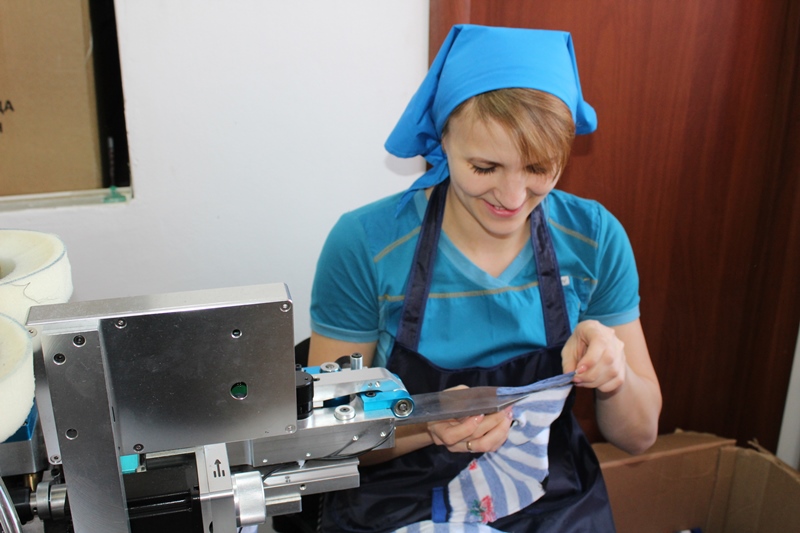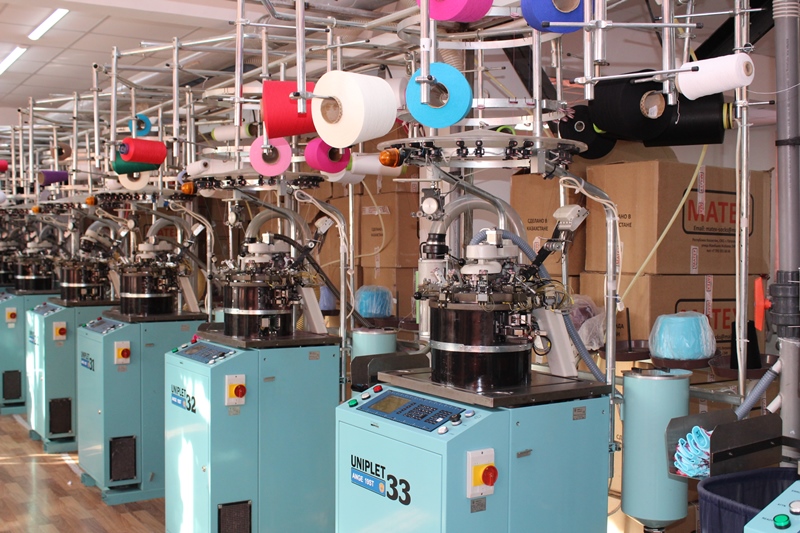NUR-SULTAN – Matex recently opened the first and only facility in the North Kazakhstan region that manufactures socks. The company represents the economy of simple things in action, as its goods are necessary, in demand and, to date, have almost exclusively been imported.
Company director Aramais Ter-Astvatsaturyan, who extensively studied the light industry market, learned only one-tenth of hosiery products in the domestic market are made in the country. He decided to fill the gap.
“In fact, making socks is not an easy process. Buying machines is not a problem. The main thing is to understand the technology. I considered buying Italian equipment and met with manufacturers, but it is very difficult for a beginner. I travelled to different factories and got experience in six months. As a result, I decided to purchase Czech equipment. In Soviet times, all factories were equipped with such equipment. These, of course, are modern. The factory has 20 machines,” he said, according to inform.kz.
“Everything is important: the number of needles, the quality of the threads and the skills of the employees. Before getting to the counter, the sock goes through several stages. A knit sock is automated. A programme is launched in which all parameters are set: from the size of the sock and its length to a pattern on it,” he added.
Ter-Astvatsaturyan creates sketches of future products for programming, noting the need to understand what you draw and how a machine can realise the idea. Each loop must be calculated and the concept adapted within the parameters.
Matex has developed 75 models of women’s, men’s and children’s socks and knee-highs. The number of needles affects the density of the product and the company must stay attuned to customer demands. Because thin socks do not sell in the region, 200 needles are not required.
“When we discuss 100-percent cotton goods, you need to understand that this does not happen. You won’t be able to put on a sock made of 100-percent cotton. If we are talking about the main thread, it is made of 100-percent cotton. In a sock, cotton thread is 85 percent. The rest are synthetic threads that are used for knitting gum, a polyamide thread for a flashing toe and lycra,” said Ter-Astvatsaturyan.
Matex purchases raw materials from Turkey and Uzbekistan. A kilogram of yarn starts at $5.
“You can buy cheaper raw materials, but we will not reduce the cost of production. My idea was not to produce socks and get billions. I have always wanted to produce high-quality products that will be in demand by our people,” he noted.
The equipment’s capacity makes it possible to manufacture 4,500 pairs per day. Products are sold only in Petropavlovsk so far.
One of the problems of light industry is the difficult mechanism of public procurement. Ter-Astvatsaturyan proposed devising a method that would allow all participants to be on equal footing during a meeting with regional deputy akin (governor) Dauren Zhandarbek.
Ter-Astvatsaturyan is confident competition should be healthy. In particular, he wants state bodies to require Kazakh content in technical specifications.


